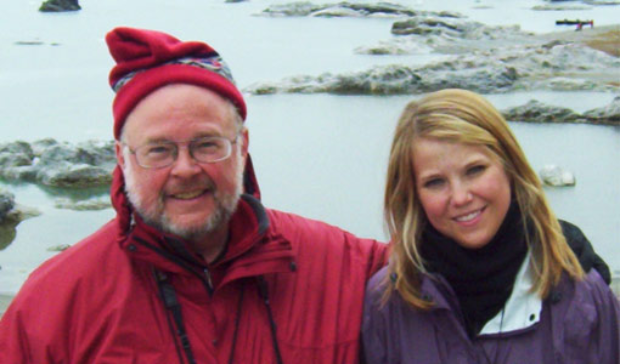Director Alanna Moravetz and Assistant Director Catherine Powell Finnegan of the Career and Professional Development Office help law students and alumni clarify their goals and develop skills to manage their careers. Here, they answer questions about how lawyers can come out on top in the job search.
Q. Has the economic environment changed how legal professionals should search for jobs?
MORAVETZ: Not really. Developing a step-by-step plan for a job search still is essential. Do something every day that keeps the momentum going. Flexibility is the key to finding a job, and that means flexibility in terms of geographic area and the size and type of employer. Networking and volunteering are as important as ever. Continuing to meet professionals who work in your areas of interest as well as acquiring new skills are vital to the job-search process.
FINNEGAN: While some of the same methods still apply, the job search requires more of three things: initiative, creativity and patience. Taking initiative means you, the job seeker, need to do more legwork to find out about positions. You need to build relationships before the posting becomes part of the equation. Being creative means that you need to “think outside the box” in terms of what you have to offer. Would you be willing to: do part-time work, temporary work, volunteer for a while, work on commission-only, do pro bono work at a lower salary until business picks up again or pitch in with administrative work around the office? If any of these are feasible options for you, then offer that to a smaller firm where you have established a good relationship. This conveys that you are a team player. It also conveys ingenuity – a quality that many employers like.
Being creative also could put you in the catbird seat when some of the regulatory changes from the new administration come down the pike. Do some investigation to find out what lawyers are concerned about changing, how it might change and what that would mean for lawyers in that practice area. Start talking to lawyers about these changes and let them know about your research and thoughts on the issues. Even better, write a short article for Bench & Bar magazine about the issue, the possible legal ramifications and possible solutions.
Be patient. It may take more time than you would like to find that next opportunity. If you need to pay the bills in the meantime, consider working for a legal temp agency.
Q. What is the most overlooked part of the job-search process?
MORAVETZ: Preparing a plan and following the plan. By breaking the plan down into chunks, it’s easier to accomplish what you want, and easier to manage the stress of the job search.
FINNEGAN: Self-reflection – knowing your own skills, interests and values. Many young lawyers do not take the time to figure this out because they are action-oriented. It is far more productive to self-reflect first. It will make applying really easy. In your cover letter or interview you will need to describe why you want the job and why you’d be good at it. If you don’t know yourself, you can’t do that and employers can see right through it.
Q. Should legal professionals look to Facebook, Linked In and even Twitter as they search for jobs?
MORAVETZ: Using social networks such as these can be a very effective strategy in a job search but they must be managed in a professional manner so that everything reflects positively to potential employers.
Q. What are the most overlooked places to find jobs?
FINNEGAN: Greater Minnesota, Wisconsin, any state. Most legal job seekers are looking in the Twin Cities or other greater metropolitan areas. If you are more flexible geographically, you can obtain fantastic legal experience in smaller towns in almost any state.
Q. As a lawyer, if you had to start looking for a new job tomorrow what would you do first?
MORAVETZ: I would contact everyone I could think of in all of the different areas of my life (social, community, etc.) and let them know I am looking for a job. I would be sure to be actively involved in bar activities (MSBA and MWL). Working in a group of similarly situated individuals who are looking for a job works well for me. I would use a coach to help me work through the process and find a job.
FINNEGAN: I would set aside a certain number of hours per day or week and dedicate them to my job search. I would use a coach or work group to keep me on track.
Q. What are the keys to opening doors for an interview?
MORAVETZ: In addition to strong cover letters and résumés, it’s the network that you have built that will get you in the door. Employers receive hundreds of résumés, and they are more likely to invite you in for an interview if there is someone they know who recommends you. Eight out of 10 jobs are found through relationships.
Q. Any résumé advice?
MORAVETZ: Proofread, proofread, proofread.
FINNEGAN: Proofread, proofread, proofread.
Read more from St. Thomas Lawyer.




